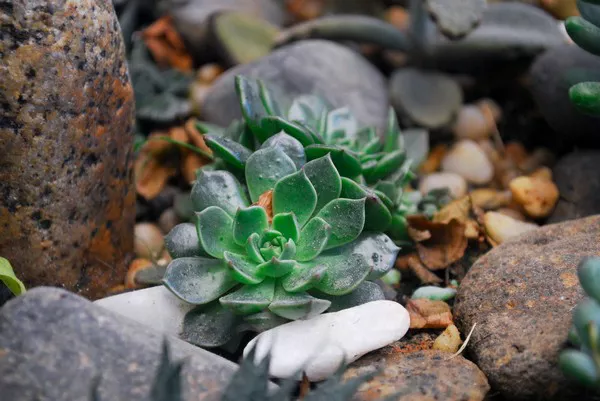Jade plants, with their striking green leaves and sturdy, tree-like stems, have long been cherished as symbols of prosperity and good fortune. Native to South Africa, these succulents have found their way into homes and offices around the world, captivating enthusiasts with their resilience and beauty. However, like any living organism, jade plants require proper care and nourishment to thrive, and choosing the right fertilizer is key to ensuring their health and vitality.
In this comprehensive guide, we will delve into the world of jade plant fertilizers, exploring the essential nutrients these plants need, the various types of fertilizers available, and tips for effectively fertilizing jade plants to promote growth and longevity.
Understanding Jade Plant Nutrition
Before delving into fertilizer options, it’s important to understand the nutritional needs of jade plants. Like all plants, jades require essential macronutrients and micronutrients to support their growth and development.
1. Macronutrients:
- Nitrogen (N): Essential for leaf and stem growth.
- Phosphorus (P): Promotes root development and flowering.
- Potassium (K): Aids in overall plant health and disease resistance.
2. Micronutrients:
- Iron (Fe), Magnesium (Mg), and Calcium (Ca): Necessary for enzyme function and chlorophyll production.
- Zinc (Zn), Copper (Cu), and Manganese (Mn): Required in smaller quantities for various metabolic processes.
- A balanced fertilizer containing these essential nutrients is crucial for maintaining the health and vigor of jade plants.
Types of Fertilizers for Jade Plants
When it comes to fertilizing jade plants, gardeners have several options to choose from. Each type of fertilizer has its own advantages and application methods, allowing plant enthusiasts to tailor their approach to the specific needs of their jade plants.
1. Liquid Fertilizers:
- Liquid fertilizers are popular among indoor gardeners for their ease of use and quick absorption by plants.
- They come in concentrated form and can be diluted with water before application.
- Liquid fertilizers are ideal for frequent feeding of jade plants during the growing season.
2. Granular Fertilizers:
- Granular fertilizers release nutrients slowly over time, providing a steady supply of nourishment to jade plants.
- They are typically applied to the soil surface and watered in, allowing nutrients to penetrate the root zone gradually.
- Granular fertilizers are suitable for outdoor jade plants and those grown in larger containers.
3. Slow-Release Fertilizers:
- Slow-release fertilizers are formulated to provide a continuous source of nutrients over an extended period, ranging from several weeks to several months.
- These fertilizers are convenient for busy gardeners who prefer less frequent applications.
- Slow-release fertilizers can be incorporated into the soil or placed on the soil surface around the base of the plant.
4. Organic Fertilizers:
- Organic fertilizers are derived from natural sources such as compost, manure, and plant-based materials.
- They are rich in organic matter and beneficial microorganisms, which improve soil structure and fertility.
- Organic fertilizers are environmentally friendly and suitable for organic gardening practices.
Choosing the right type of fertilizer for jade plants depends on factors such as plant size, growth stage, and environmental conditions. Experimenting with different formulations can help determine the most effective fertilizer for your specific needs.
See Also: Choosing the Right Soil for Succulents
Tips for Fertilizing Jade Plants
To ensure optimal growth and health, follow these guidelines when fertilizing jade plants:
1. Select a Balanced Fertilizer: Choose a fertilizer with a balanced ratio of nitrogen, phosphorus, and potassium (N-P-K) to meet the nutritional needs of jade plants.
2. Follow Dilution Instructions: If using liquid fertilizer, carefully follow the dilution instructions provided on the label to avoid over-fertilization, which can damage the plant.
3. Apply Fertilizer During the Growing Season: Fertilize jade plants regularly during the growing season, typically spring and summer, when they are actively growing and producing new foliage.
4. Avoid Fertilizing Dormant Plants: Refrain from fertilizing jade plants during the dormant period in fall and winter, as they require less nutrients during this time.
5. Monitor Soil Moisture: Before fertilizing, check the moisture level of the soil to ensure it is neither too dry nor too wet. Fertilizing dry soil can lead to root burn, while fertilizing waterlogged soil can result in nutrient leaching.
6. Water After Fertilizing: After applying fertilizer, water the soil thoroughly to distribute nutrients evenly and prevent salt buildup.
7. Watch for Signs of Over-Fertilization: Symptoms of over-fertilization in jade plants include leaf discoloration, wilting, and stunted growth. If these signs occur, flush the soil with water to remove excess salts.
By following these tips and choosing the right fertilizer for your jade plants, you can promote lush growth, vibrant foliage, and a thriving indoor garden.
Conclusion
Jade plants are prized for their beauty, resilience, and symbolism, making them popular choices for indoor and outdoor gardens alike. To ensure the health and vitality of your jade plants, it’s essential to provide them with the proper care and nourishment they need to thrive.
By understanding the nutritional requirements of jade plants, exploring different types of fertilizers, and following best practices for fertilizing, you can unlock the green secret to success and enjoy flourishing jade plants for years to come.


